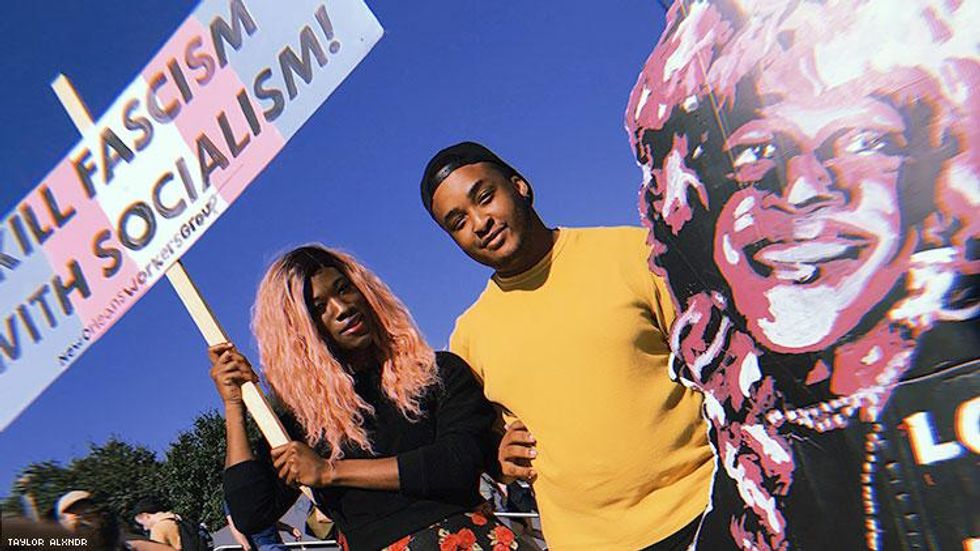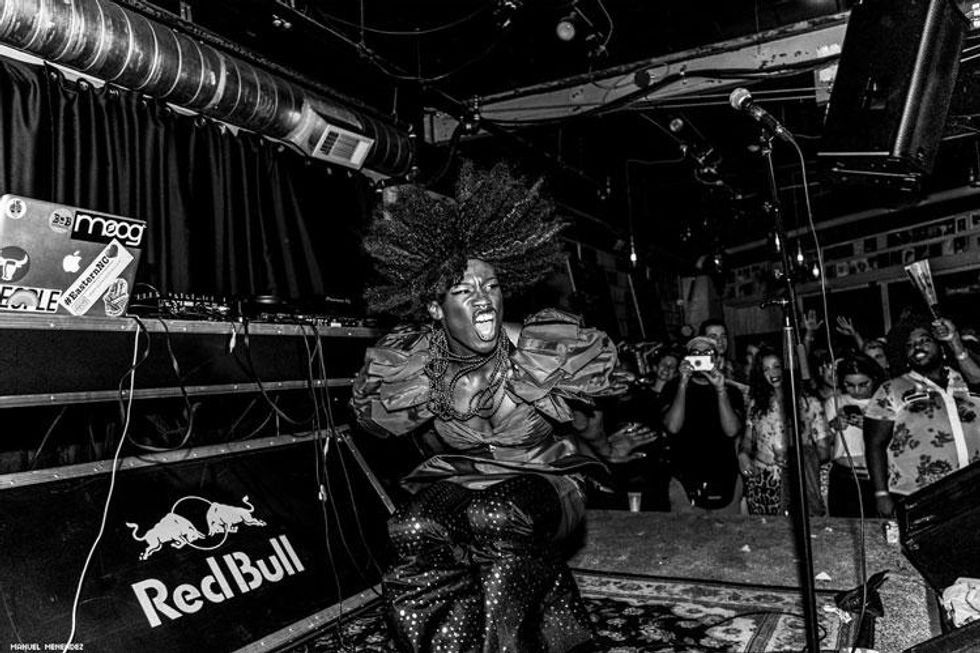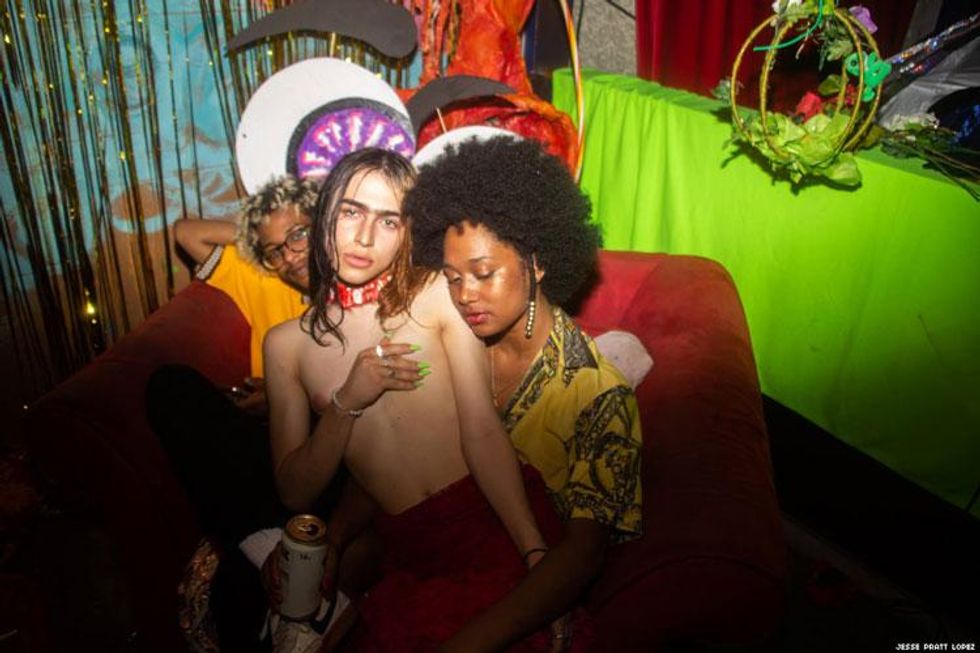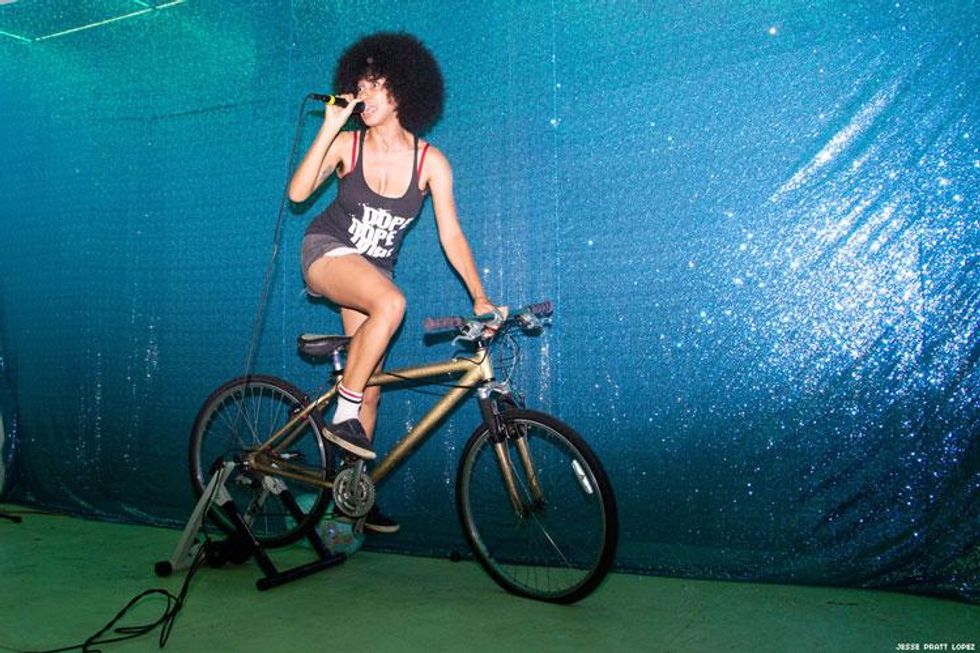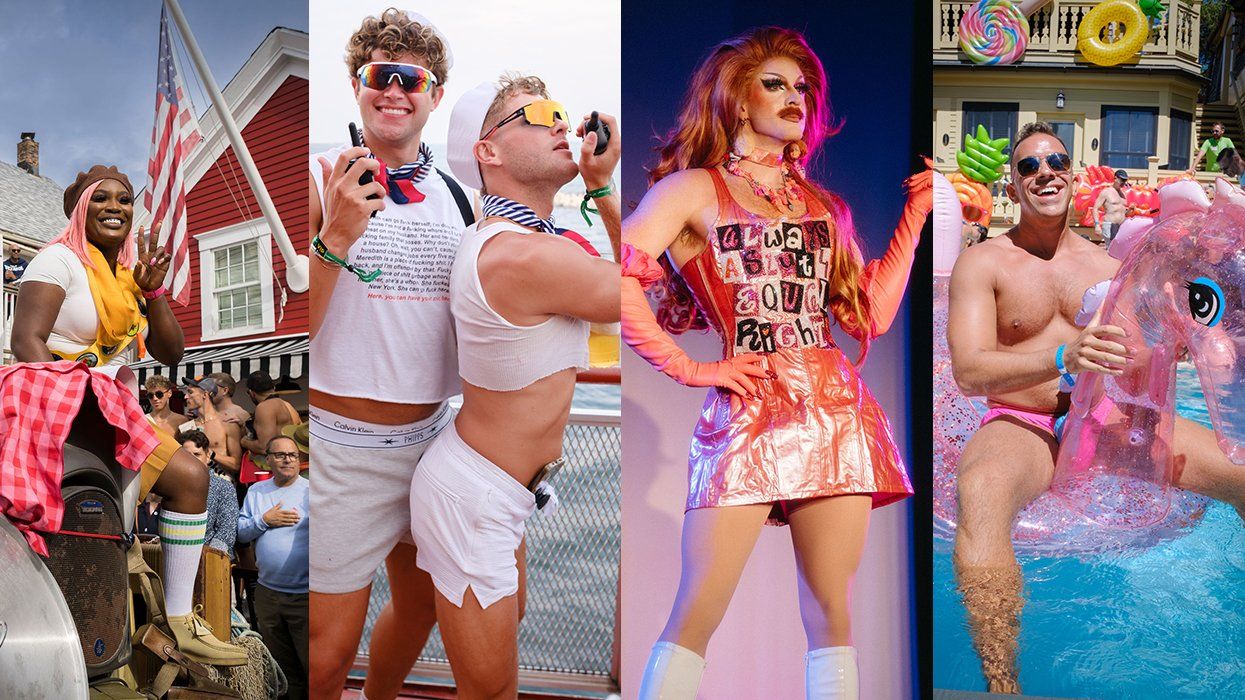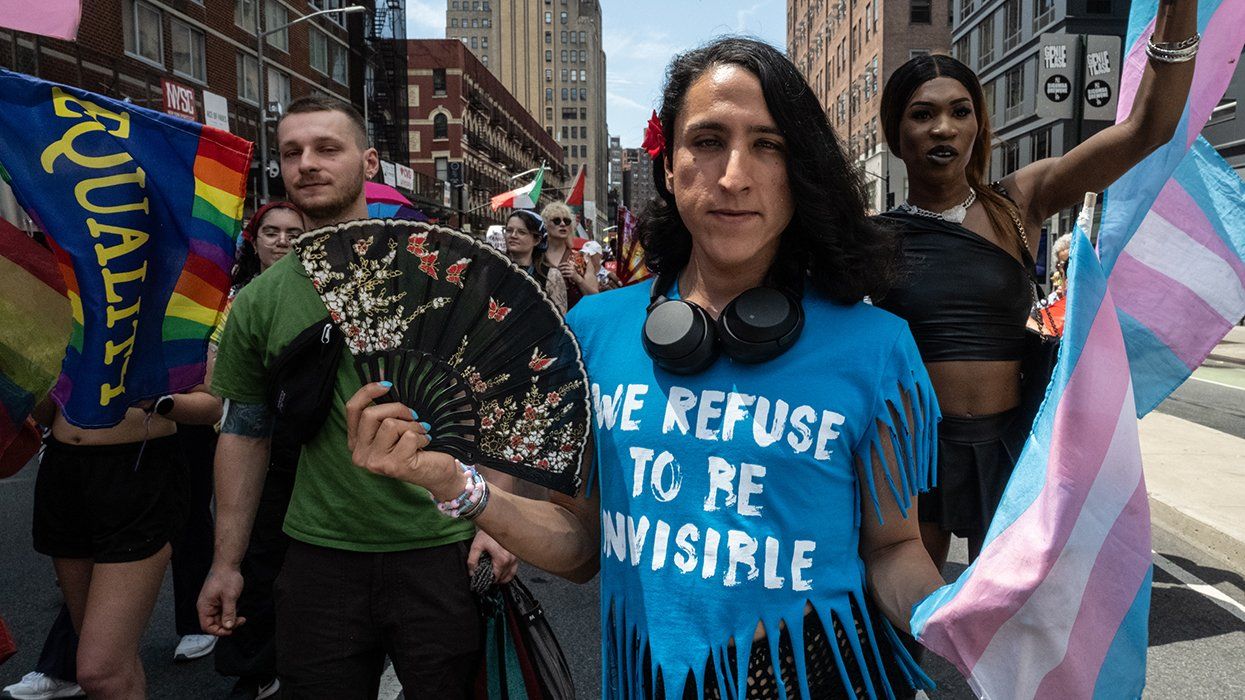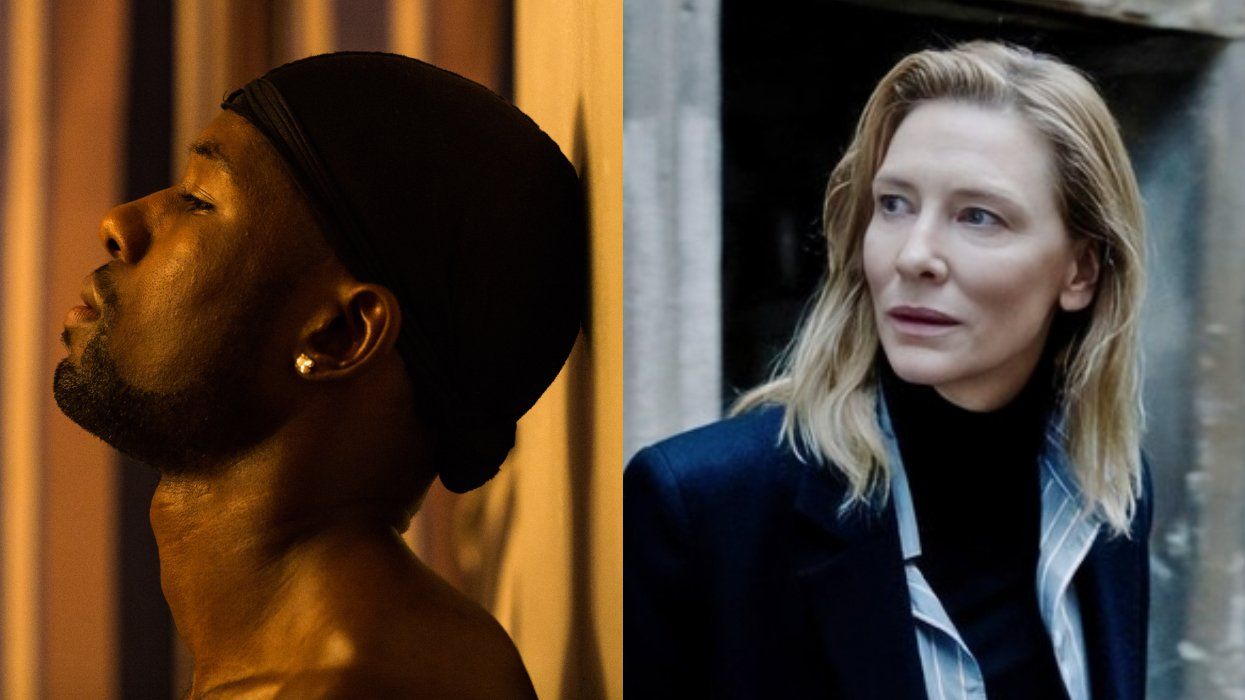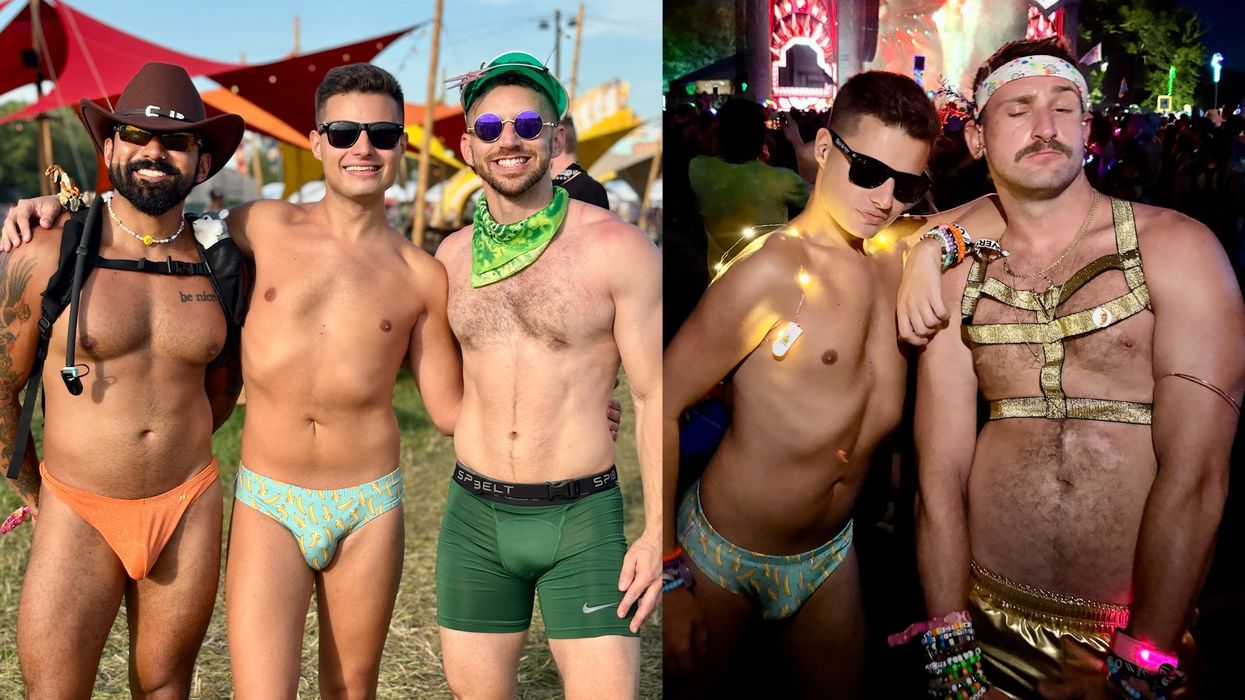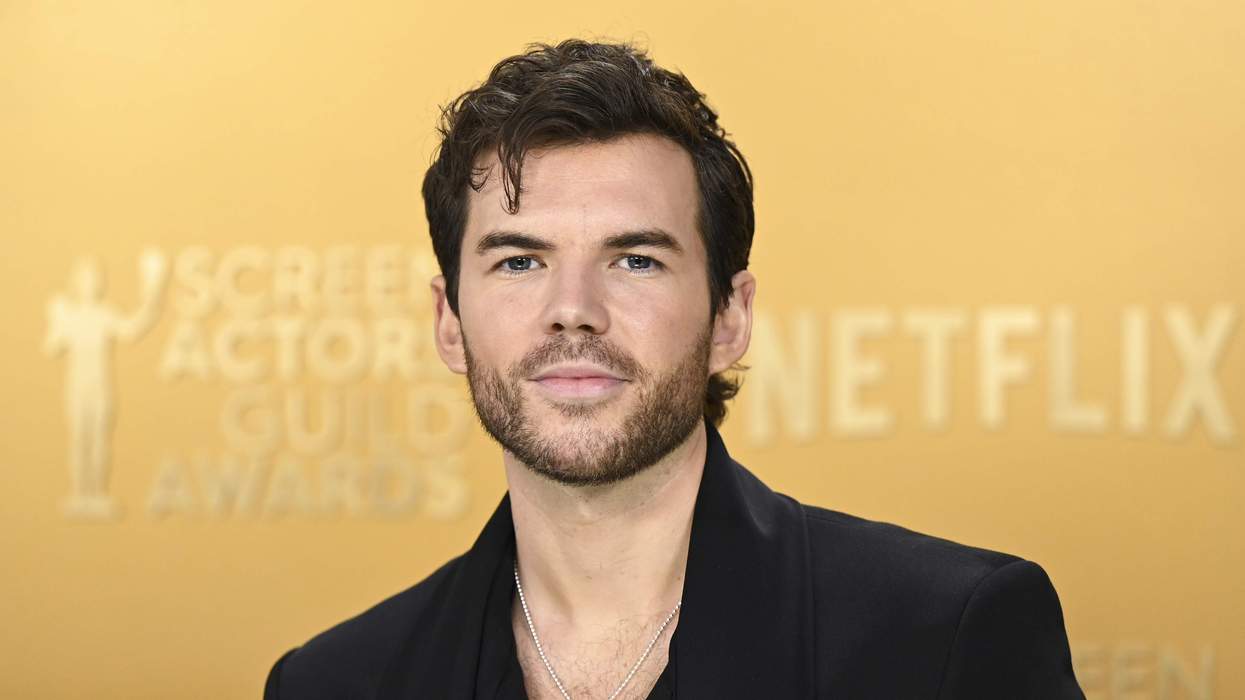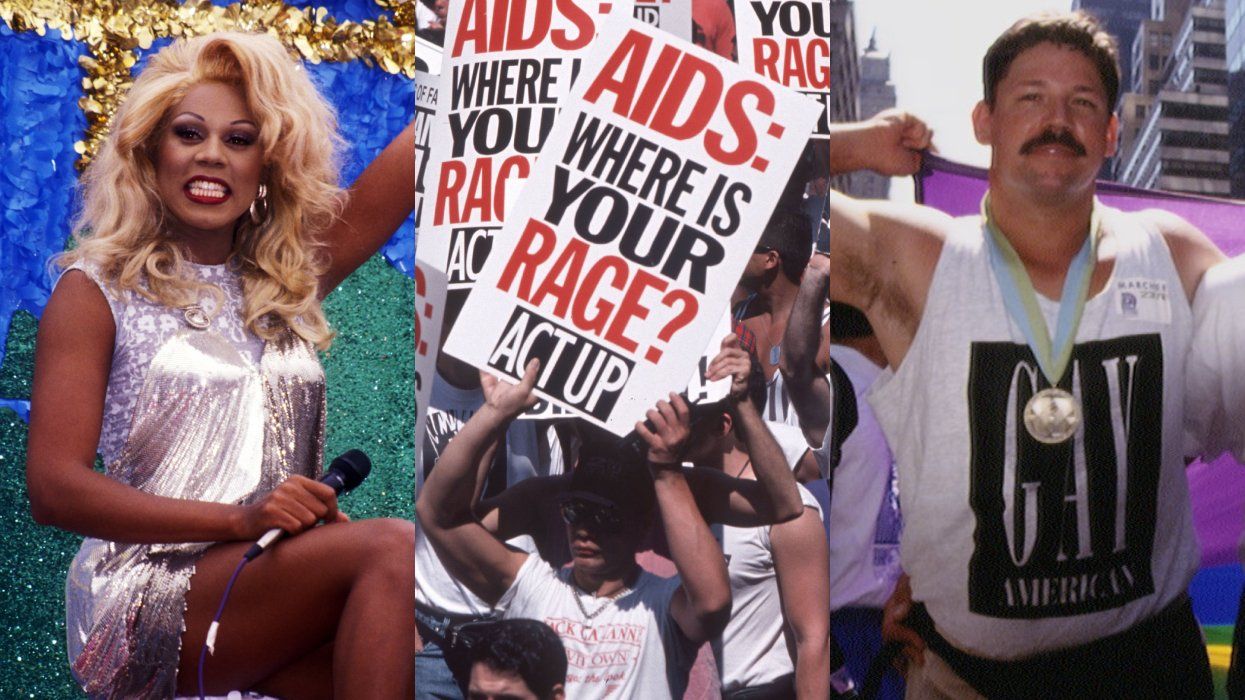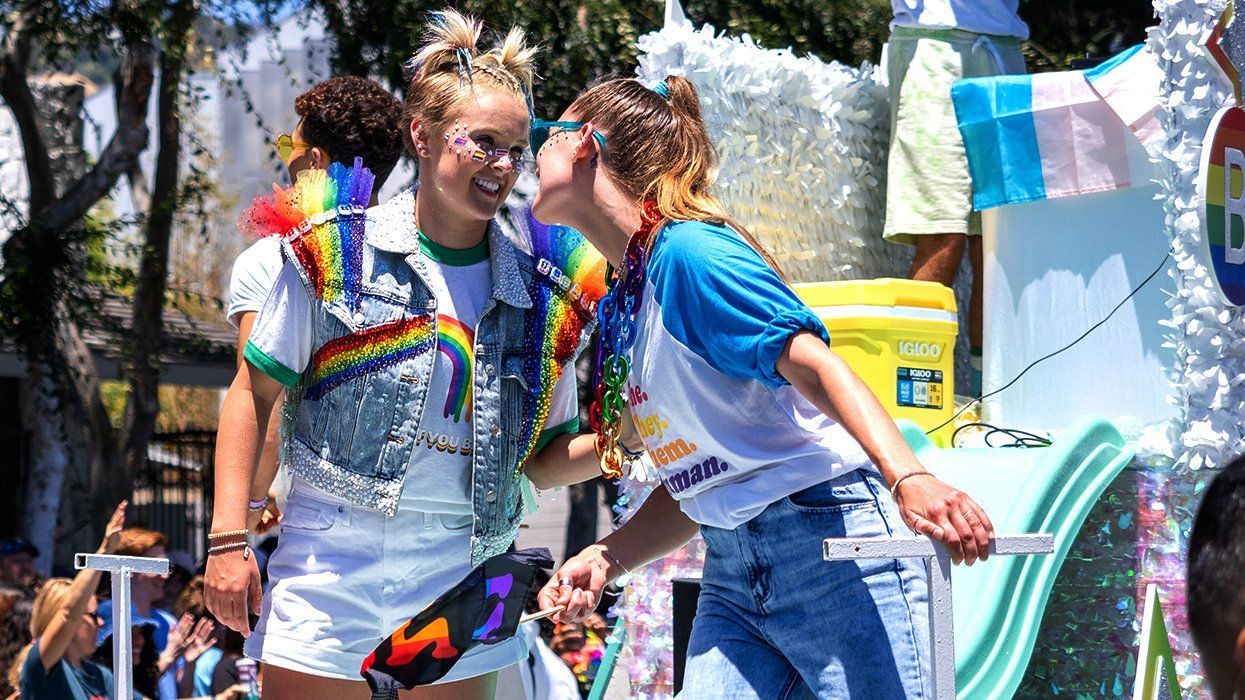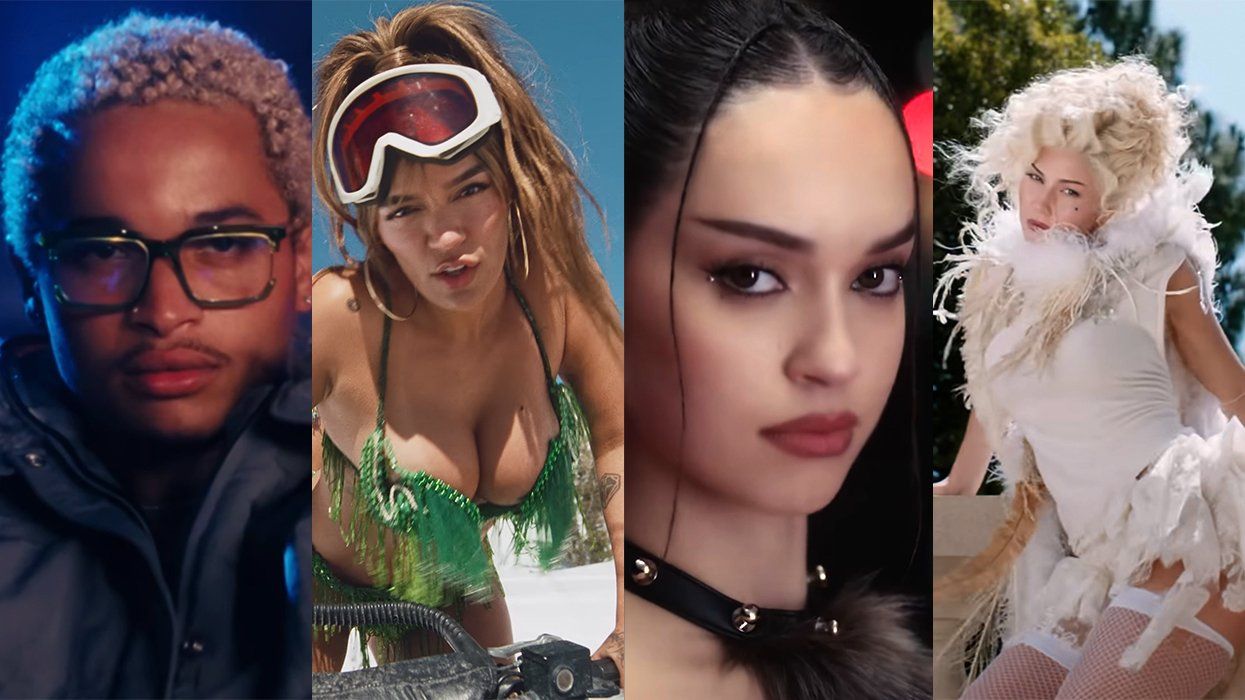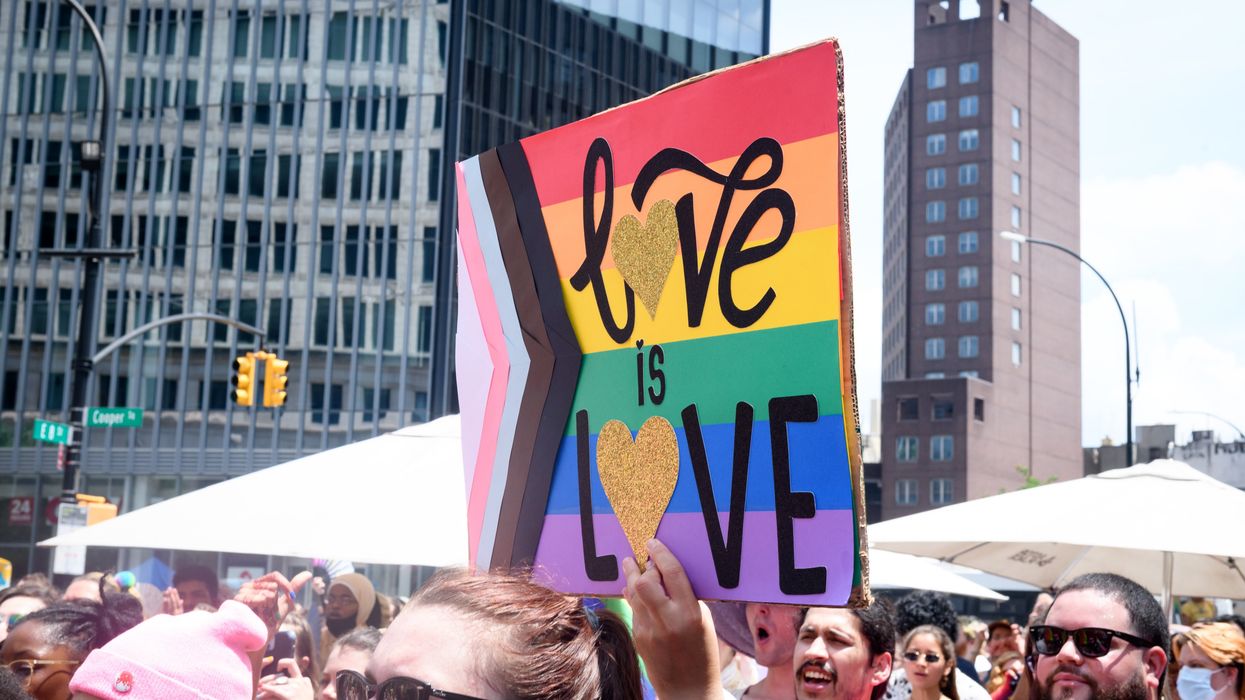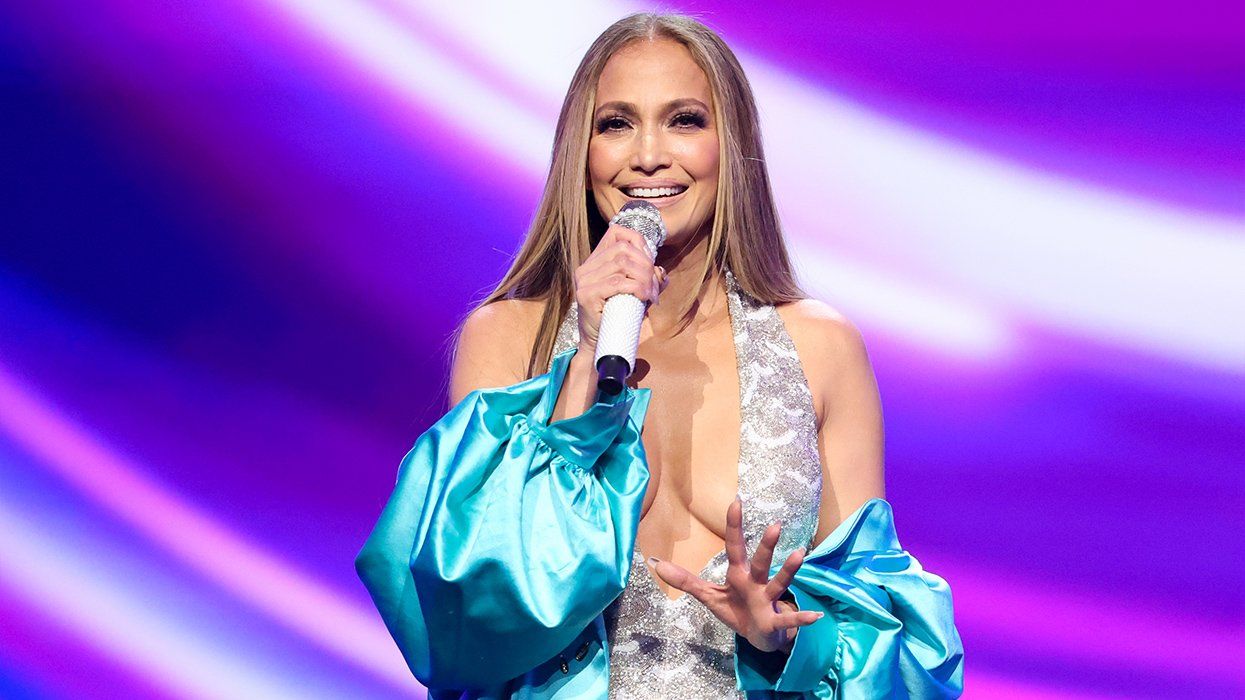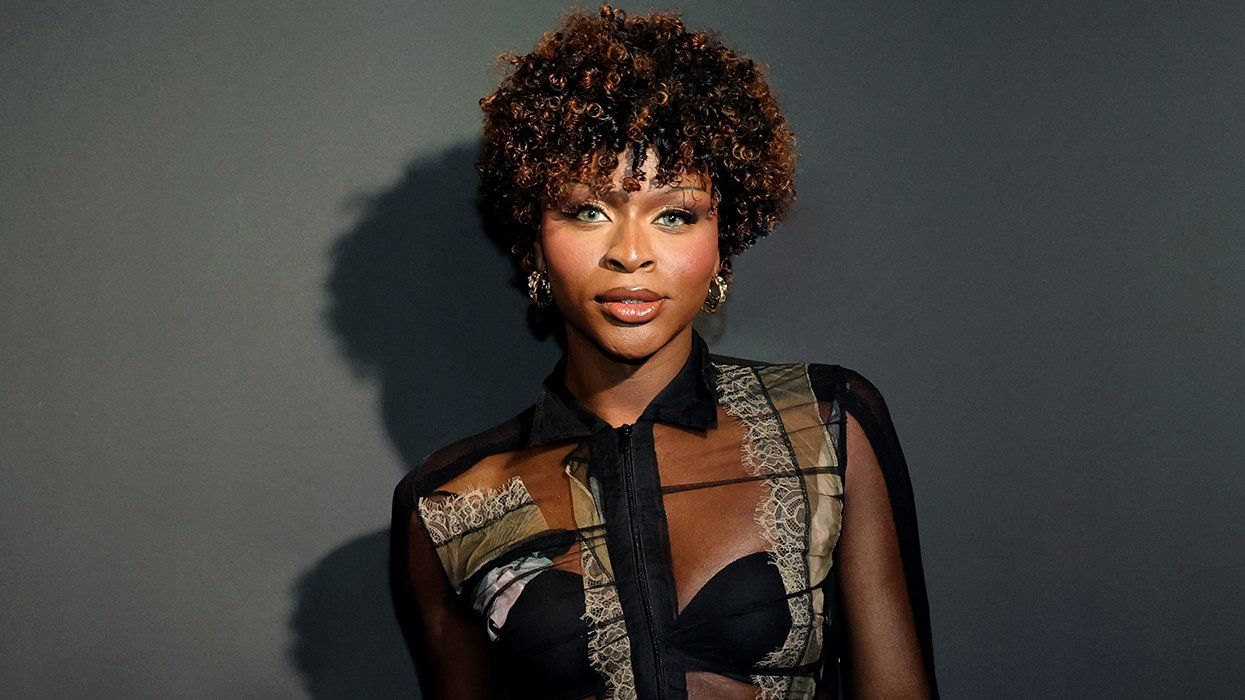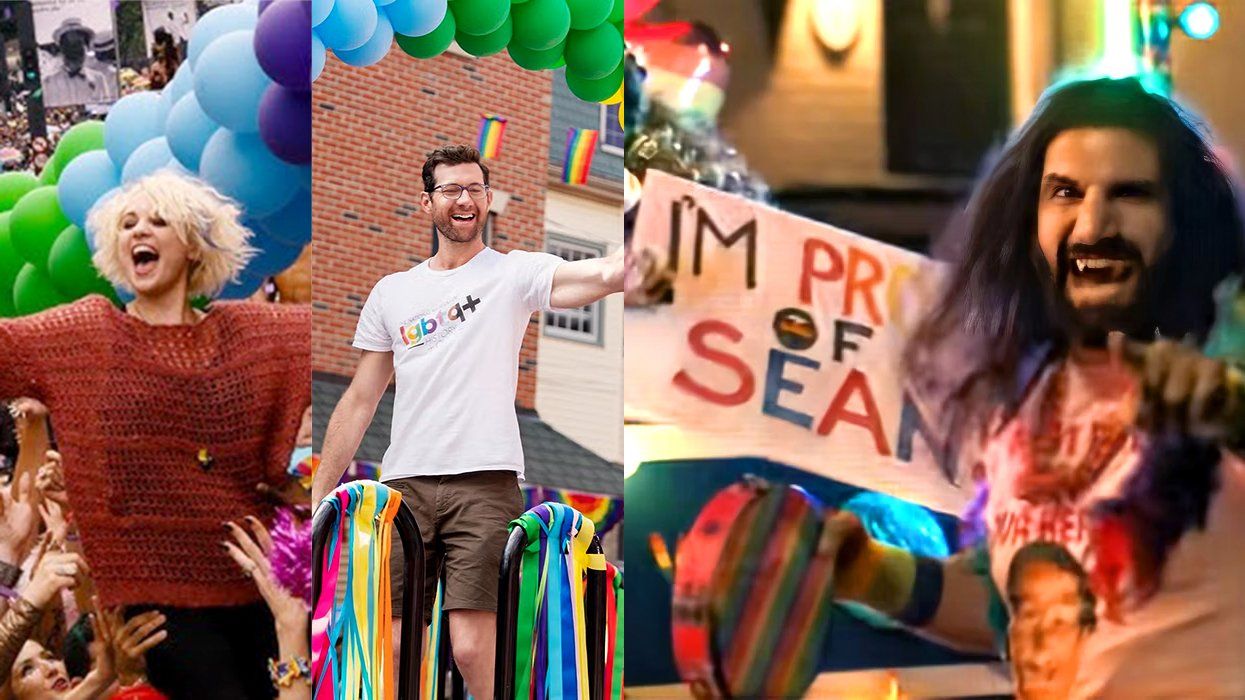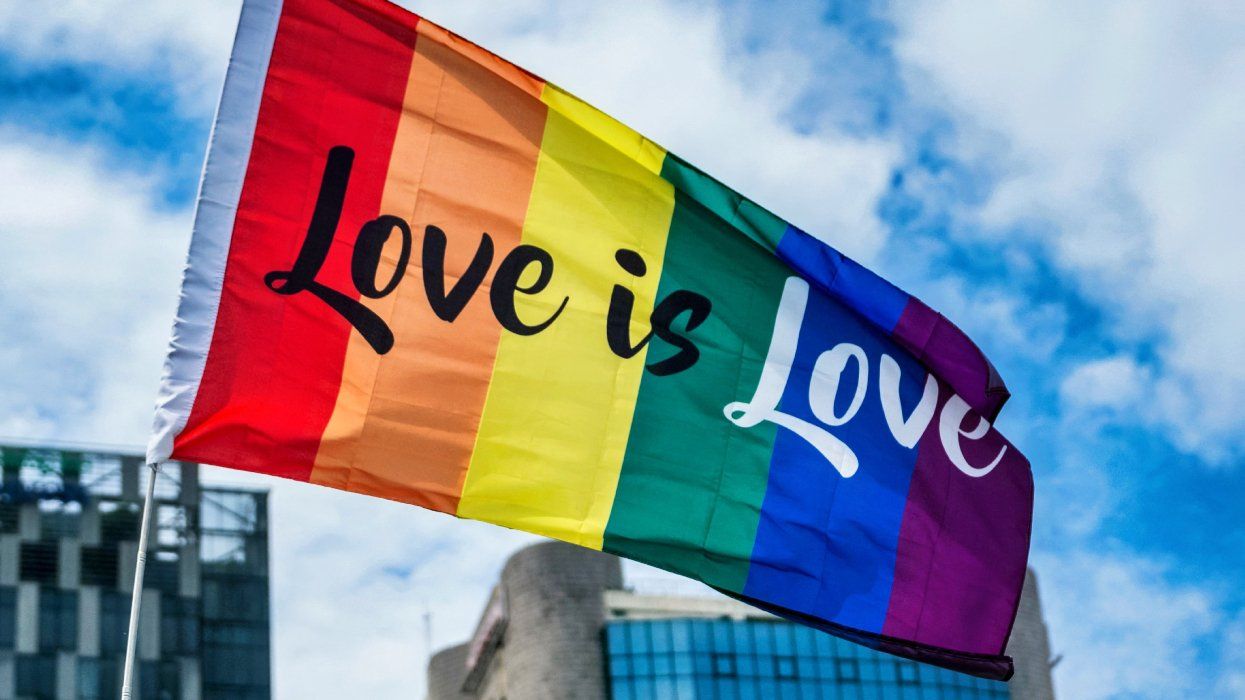There's a particular mainstream image that's tied to LGBTQ+ pride. So often, it's very white, very cisgender, and very gay-male with a backdrop of either New York or San Francisco. For young queer and trans Southerners, particularly those of color and from rural communities, there was a need for something that looked, sounded, and felt more like them.
Enter Southern Fried Queer Pride (SFQP), an Atlanta-based arts and advocacy organization that celebrates the unique perspective of Southern queerness. According to its website, its work and vision is "Cooked in the oils of our forequeers of the Compton Cafeteria Riots, the Stonewall Riots, ACT UP, and the many radical uprisings of years past, SFQP holds close to the political identity of being queer."
Founded in 2014, the organization is the brainchild of co-founders Taylor ALXNDR (who has been dubbed an underground drag icon by Bandcamp and serves as SFQP executive director) and Micky B (a performance artist and national organizer with Transgender Law Center). Micky now serves on the organization's board with Jeffrey Martin, Cortez Wright, and Britt Dunn. SFQP has always had a formidable supporting cast, but now the organization boasts nearly 15 core "chefs," or volunteers who support with planning and promotion of their iconic events. "There's so many chefs in the kitchen and I think that's why we cook up such a tasty meal," ALXNDR says.
The first festival sparked a renaissance of autonomous Black and brown queer and trans presence on the Atlanta scene. With workshops, film screenings, self-care brunches, and signature performance showcases (featuring headliners like bbymutha, Leikeli47, Abdu Ali, Bell's Roar, Chae Buttah, Cakes da Killa, Precious, and Linqua Franca), anyone who attends an SFQP event is sure to leave with a full belly. The organization also worked with DJ collective Morph on last year's groundbreaking ATL Is Burning Ball sponsored by Red Bull. And since then, the festival has traveled beyond Atlanta's perimeter to another Southern queer mecca, Durham, NC, and plans to continue exporting the magic (perhaps in the form of pop-up one-day experiences) to other locations like New Orleans and smaller towns. There's also work underway for a physical headquarters in Atlanta, for which they are currently raising funds.
The 2019 edition of SFQP runs from June 26-30 and the community will be celebrating "five fried years." We caught up with SFQP co-founders Taylor ALXNDR and Micky B to discuss the friendship that fuels their work and how the Queer South's got sumthin' to say.
There's such an important story behind Southern Fried Queer Pride on the power of friendship. How did your relationship lead into this joint organizing work? Essentially, what's the origin story of the friendship of Micky and Taylor?
Micky B: Who said we're friends?
Taylor ALXNDR: [laughs] This is purely professional! No... I met Micky my freshman year in 2011 at Georgia State University through an Intro to LGBT Studies class and the Alliance for Sexual and Gender Diversity. Also, the Alliance had a drag show twice a year and when I got there, Micky was the head bitch [performer]. Everybody was just like, "You have to get to know Micky. She is such an amazing performer and she does the shows." That's really how we started to get to know each other.
Micky: I will say our friendship was really brought together because we got into an online scuffle where I was very new to my politics and everything social justice. I put some really hurtful and problematic stuff and she called me out on it and I didn't take it well. I remember several people canceled me. Then Taylor, literally just called me the very next day and was like, "Girl, you want to get something to eat? What you doing this weekend? What's up?" I apologized and she was like, "All right, we have bigger things to do." It really just let me know that this person is actually really serious about everything that they do and they're serious about me as their friend.
Could y'all describe the spaces that you were navigating as Black, queer folks and what you wanted to see?
Taylor: Around the time SFQP was fully coming into its own, I had come out as nonbinary and moved from a small town with no visible queer community and to Atlanta. But I was kind of disappointed. I didn't see a space for the youth, queer art being uplifted, or spaces where Black and Brown people owned the space they were in and were the heralded creators of culture. Us and our friends were young and in college, some of us were homeless and living with seven people in two-bedroom apartments. We were all just trying to find some sense of joy and happiness that we all could connect to, and often that was going to house parties or bars to see a drag show. That kind of led us to believe that there's this deep connection to building community through the arts in a way that also uplift the community. That's kind of really the intersection of where we arrived, trying to use art as a form of activism to get people together but also educate them, mobilize them, and build stronger communities.
Micky: There was just a lack of spaces that celebrated being from the South, living in the South and being queer in a very loud and expressive and creative way. I also remember a huge catalyst for us was that a lot of the places where we performed professionally would tolerate racism and problematic practices. They were anti-Black in their talent booking and in compensation. There were so many instances where white queens were allowed to come in Blackface or perform in a hijab and a leather harness, hint hint, like Violet Chachki. It was just no problem and we were so fed up with that. We were like, we need our own spaces where we don't tolerate that.
Taylor: I definitely agree because we kind of were a few years before this whole worldly internet knowledge about being woke and calling people out. Yeah, there were definitely spaces and there still are in Atlanta where Black queens are used as the token kind of act. You know she's going to come out there and have a good show, but she will not get paid as much, she will not get booked as much, and she won't be as respected for doing the most compared to a white performer who walks around in a circle for an hour and can still be viewed as the best.
Could you guys just describe what that time was like in the early days of organizing SFQP for both of you as the wheels were starting to move on the project?
Taylor: When we first started saying we're going to put on this festival, it's going to be a queer arts and activism festival and it's going to be around the time of Stonewall, at that time, neither of us or anybody really involved with SFQP, none of us knew how to really fundraise like that. Our first festival in 2015 was completely funded off of three house parties with a budget of $1,500 for a three-day festival. So, it went from having house parties to starting to dabble in the bars that we thought supported the work and shared the vision that we had. As we always do at SFQP, working with DIY venues who would let us use their space for free or for really cheap and also had really great politics around operating those spaces.
How do you think SFQP has grown and evolved since its inception?
Taylor: It's really hard to believe that the event that we were talking about in a coffee shop is now a kind of behemoth. People kind of looked at us, here in Atlanta, when we first started, as just a party or something that these kids are throwing. Then they saw that all the Black, Brown, young, queer and trans people coming out to us and having fun. But they were also leaving with a sense of community that they weren't getting from elsewhere.
Micky: We've grown from fundraising off of Jell-o shots to now receiving large grants, whether there's Fulton County Arts Council or from these national trans organizations and foundations. I also think that our vision has definitely grown. We very much started in DIY entertainment communities of folks who were putting shows together out of nothing, out of a shoestring and maybe one amp if you even had that.
I think that we've slowly built a political consciousness raising that allowed workshops and community conversations about accountability and racism and transphobia and artist props and all of those things have come out of the consciousness raising that happens outside of the parties.
I'm sure there are multiple moments, but what's your most memorable one from an SFQP event or just throughout the trajectory of SFQP?
Micky: Ooh, okay, I have one. One night we had a raffle and I had put in this Target gift card that was $250 or something like that. One of the people that won it was someone who had DJ'd for us and they shared this heartbreaking story after they won it about how they didn't know how they were going to eat the rest of that month, how they were going to pay rent, how they were going to survive. So, winning that gift card really meant something to them especially because they had worked so hard to get dressed, get cute, put on makeup, put on a look, come and DJ for us knowing that they were struggling with all of this. They still wanted to come out and be with queer folks and then here was this blessing. It just broke my heart because I was like, "Oh god, if only we knew what people were really going through. I wish we could do more." I feel like we've tried our best to amass as much money as we possibly can so that we can get it out to our people as quickly as we possibly can, whether it's a stipend for their work or just some cash, whatever it is. Just trying to make sure that people have what they need because that was just a really heartbreaking night.
Taylor: There was an instance where somebody came up to me on the very last day of [last year's] festival and they were like, "I don't want to sound weird or to be that kind of person, but y'all's events are really the only thing that's keeping me alive. Knowing that there's a space out there for me and that there's people out there like me who experience the same things and that I'm not alone in this process."
So what's next for SFQP?
Taylor: We're celebrating five years of putting on the festival here in Atlanta and that means a lot to us because a lot of DIY kind of festivals and organizations falter really quickly because they don't have the structure or the support or they grow too fast and people go on about their lives. We just had our second Durham festival the first weekend in May and we're working on a one-day festival in New Orleans for later this year. But the major thing that I think we have always envisioned since we began SFQP is having a concrete venue space that would serve as a community center for the arts and things like that, a place that we can put on events to build community, put on workshops because as of right now, Atlanta doesn't have a fully functioning community center.
Micky: Yeah, having a physical queer arts and culture center based in Atlanta, as well as, being able to deliver resources to the community, having community meetings and retreats, planning strategy or responses to attacks that come on our community and healing space is all beneficial for movement building. That's why we need this in Atlanta because we need our movement to be built here and badder and stronger and queerer and Blacker.
Each time we try to live our vision of the community that we want to live in. I think every time the people praise and have love for SFQP, it's because we're literally trying to create and practice the beloved communities that we want to live in someday. We want to live in communities where people feel safe and feel seen and feel supported and feel like they can lead their own creative direction and they can be organizers and they can be political leaders and they can be politically engaged and all of these things.
RELATED: This Radical Organization Has Been Fighting in the South for 25 Years



